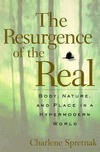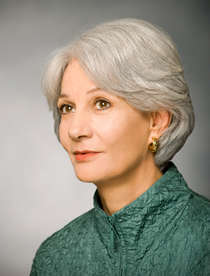
1997
First Published
3.69
Average Rating
292
Number of Pages
The closing years of this century find Americans skeptical of modern institutions—the political system, the gloablized economy, the public schools—and their abilities to solve the most basic problems of our time. Amid the rising tide of discontent, the public debates—including the ”culture wars”—seem to be a mere spinning of wheels.In a penetrating analysis of our times, Charlene Spretnak asserts that both the liberal and conservative sides in those debates are situated in the very orientation that created the modern the mechanistic worldview with Homo economicus at the center. The grand claims of modernity no longer inspire confidence because its destructive effects seem to be multiplying. The author, an influential public intellectual, speaks poignantly to our growing sense of what has been lost and what is slipping away.Yet Charlene Spretnak argues persuasively that the intensification of the modern crises is not inevitable and is already being challenged by an impressive network of corrective efforts. The new acceptance of holistic medicine (forced by the healthcare crisis, the new understandings in science of nature's powers of dynamic creativity and self-organization, the new political opposition of community-based activists to the forces of globalization, and the new surge of independence efforts by ancient nations that have been devoured by modern states—all are part of an emergent value system that counters the modern conception of liberty as a flight from body, nature and place.After identifying ”epochal rumblings” embedded in the nightly news in the 1990s, Charlene Spretnak illuminates the sources of the modern condition with exceptional clarity. Moreover, she reframes ”the other history” of the modern the ecospiritual lineage of movements that resisted the corrosive effects of the industrialized modern world. These include the Arts and Crafts movement, the cosmological schools of painting, the stream of Modernist writers and artists who did not embrace the ”machine aesthetic” after World War One, and Gandhi's ”Constructive Program.” The grassroots movements today that are forging a new politics of local and regional revitalization beyond left-and-right are heir to a rich tradition, to which the author brings original interpretations.Finally, Charlene Spretnak concludes her wideranging exploration with an engaging story of an American heartland city in the near future that has largely decoupled from the destructive dynamics of the globalized economy and initiated a range of pragmatic alternatives in its region.Both a sharp critique and a graceful performance of the art of the possible, The Resurgence of the Real changes the way we thing about living in the modern world.
Avg Rating
3.69
Number of Ratings
39
5 STARS
28%
4 STARS
33%
3 STARS
21%
2 STARS
15%
1 STARS
3%
goodreads
Author

Charlene Spretnak
Author · 8 books
Charlene Spretnak has been intrigued throughout her life as a writer, speaker, and activist with dynamic interrelatedness. She has written nine books on various subjects in which interrelatedness plays a central role, including its expression in the arts. She is particularly interested in 21st-century discoveries indicating that the physical world, including the human bodymind, is far more dynamically interrelated than modernity had assumed. Such discoveries are currently causing a “relational shift” in our institutions and systems of knowledge, as she suggests in Relational Reality (2011). Several of her books have also proposed a "map of the terrain" of emergent social-change movements and an exploration of the issues involved. She has helped to create an eco-social frame of reference and vision in the areas of social criticism (including feminism), cultural history, and religion and spirituality. Since the mid-1980s, her books have examined the multiple crises of modernity and furthered the corrective efforts that are arising. Her book Green Politics was a major catalyst for the formation of the U.S. Green Party movement, of which she is a cofounder. Her book The Resurgence of the Real was named by the Los Angeles Times as one of the Best Books of 1997. In 2006 Charlene Spretnak was named by the British government's Environment Department as one of the "100 Eco-Heroes of All Time." In 2012 she received the Demeter Award for lifetime achievement as "one of the premier visionary feminist thinkers of our time" from the Association for the Study of Women and Mythology. She is a professor emerita in philosophy and religion.